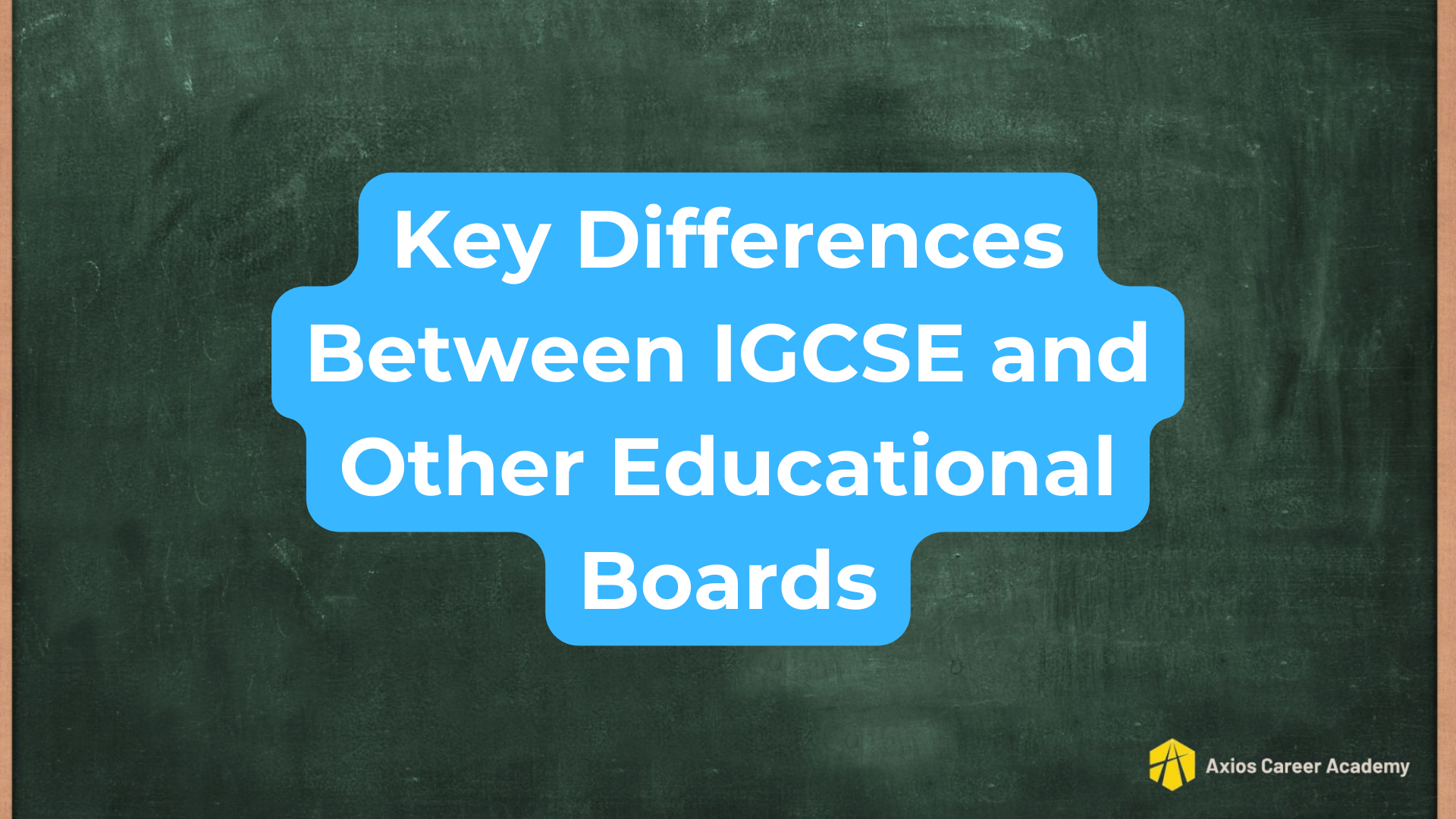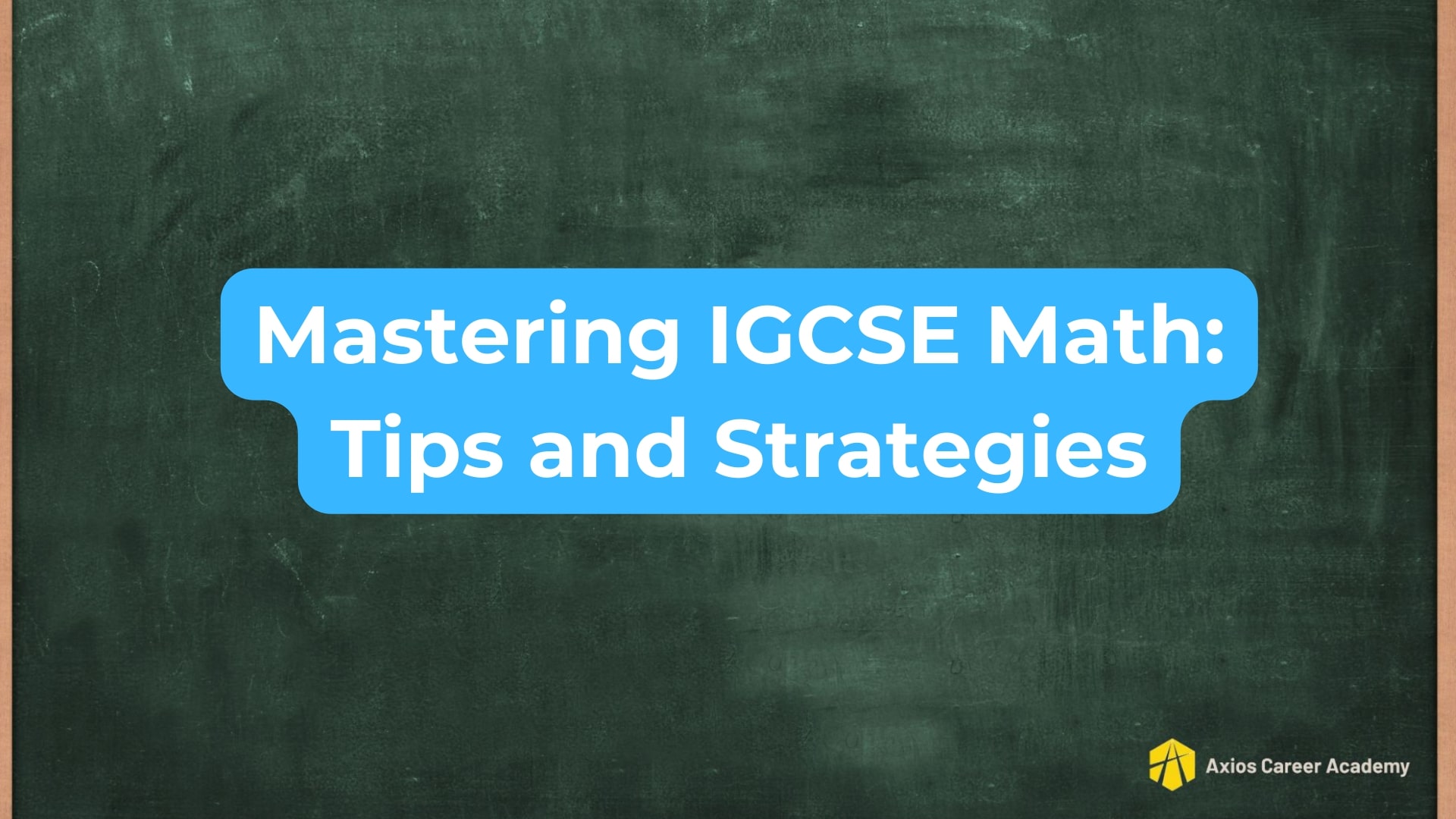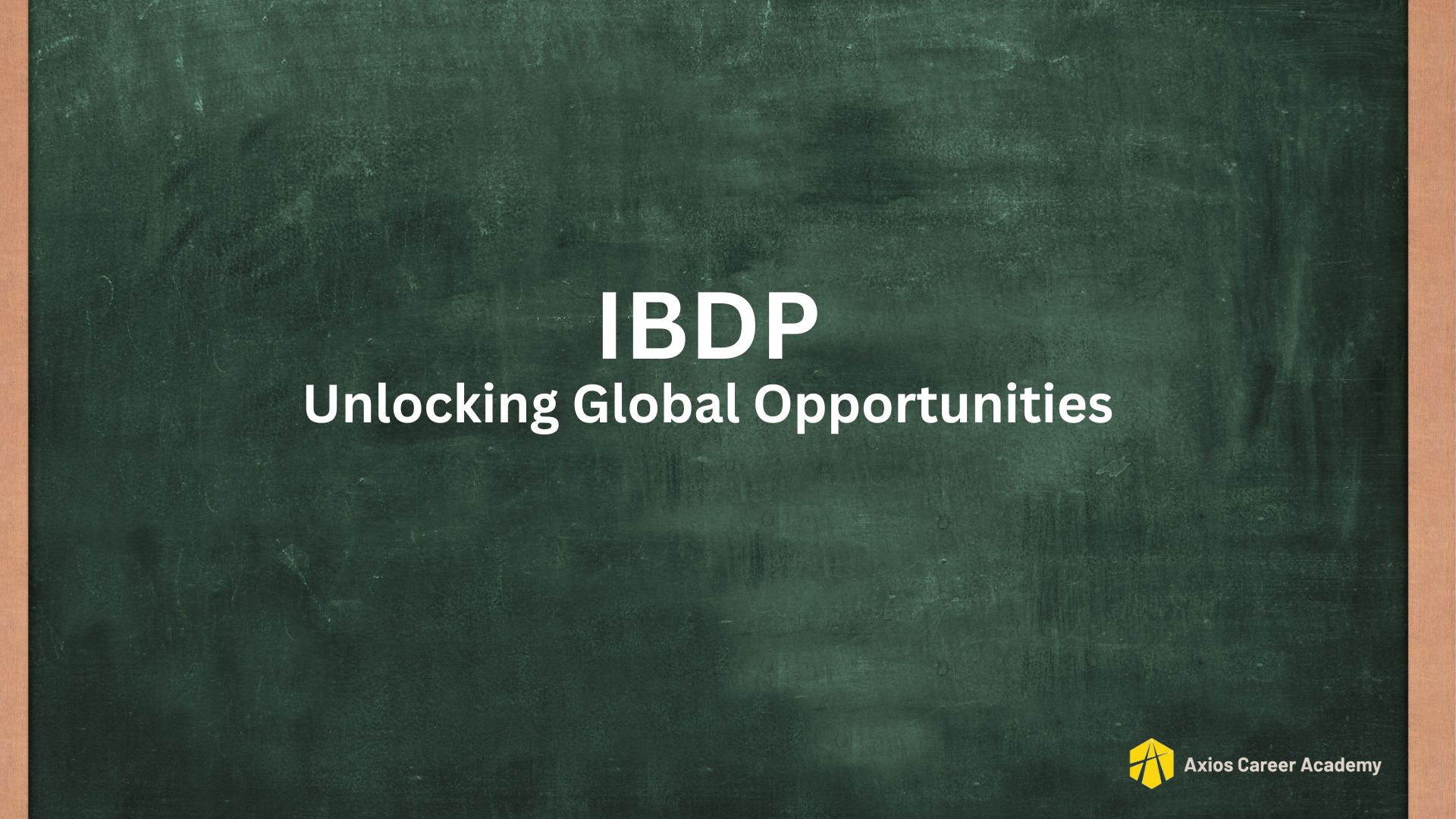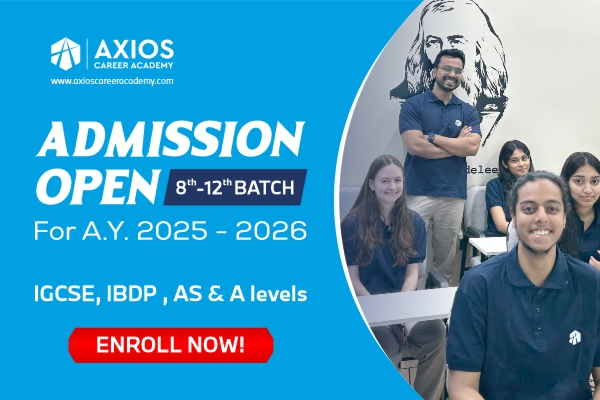Preparation Tips for igcse Students
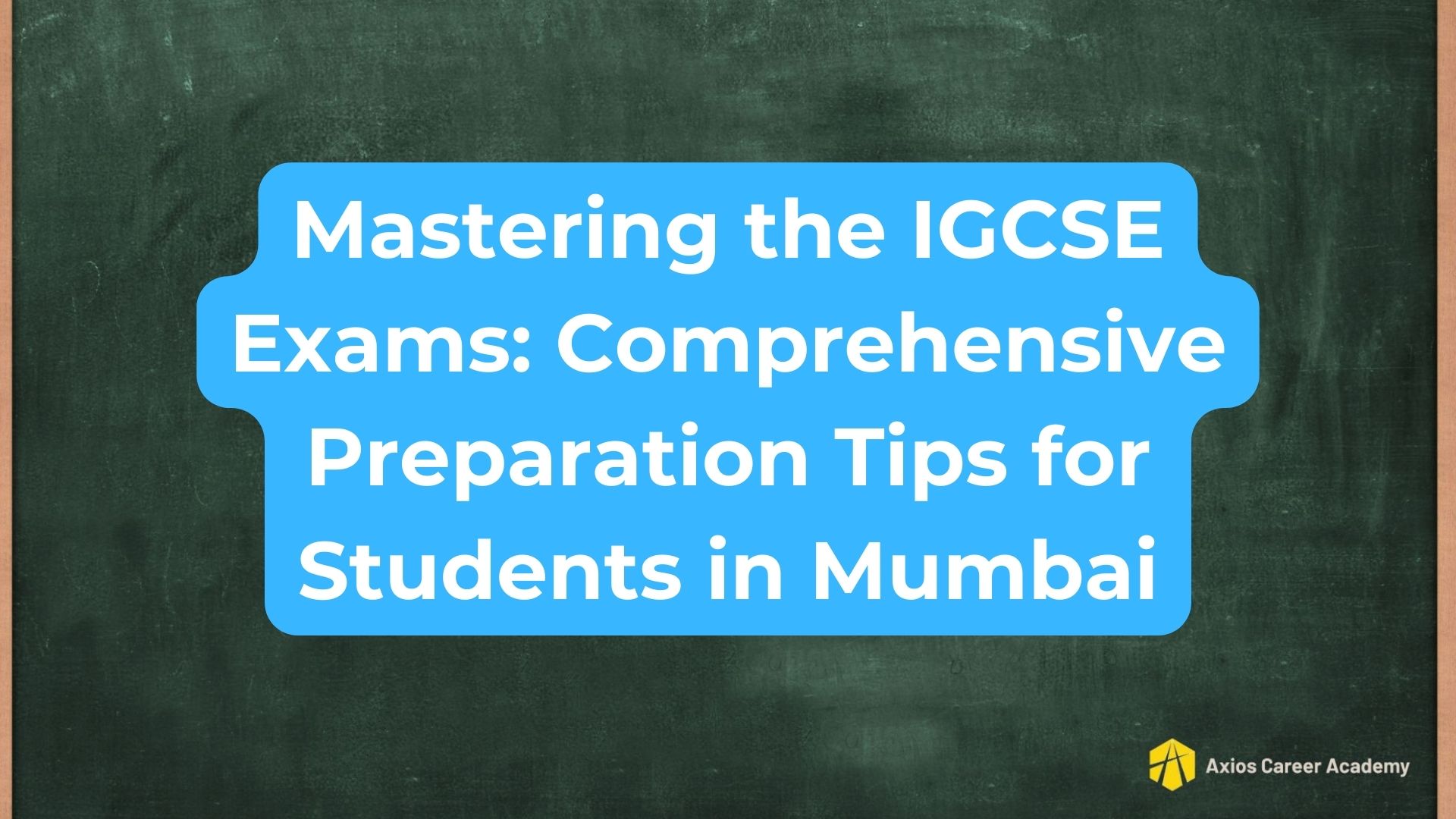
Mastering the IGCSE Exams: Comprehensive Preparation Tips for Students in Mumbai
Introduction
The International General Certificate of Secondary Education (IGCSE) is a globally recognized qualification designed for students aged 14 to 16. Developed by the University of Cambridge International Examinations (CIE), the IGCSE is known for its high academic standards and broad curriculum. It emphasizes critical thinking, problem-solving, and practical skills, preparing students for further education and successful careers. The importance of IGCSE lies in its ability to provide a well-rounded education that meets international standards, making it an excellent foundation for higher studies and future employment.
In Mumbai, the IGCSE has become increasingly popular among students and parents. The city's competitive educational environment and the desire for international qualifications have driven many to choose the IGCSE. Numerous prestigious schools in Mumbai now offer the IGCSE curriculum, recognizing its value in providing a comprehensive and globally accepted education. The qualification is highly respected by universities and employers worldwide, making it an attractive option for students aiming for higher education and career opportunities abroad.
The purpose of this blog is to provide effective preparation tips and study strategies specifically tailored for IGCSE students in Mumbai. Whether you're just beginning your IGCSE journey or looking for ways to enhance your study methods, this blog will equip you with the tools and knowledge needed to succeed. Let's explore the world of IGCSE exam preparation and discover how to excel in this important academic milestone.
Section 1: Understanding the IGCSE Exams
What is IGCSE?
The International General Certificate of Secondary Education (IGCSE) is a globally recognized qualification for students typically aged 14 to 16. It was developed by the University of Cambridge International Examinations (CIE) and is known for its rigorous academic standards. The IGCSE provides a solid foundation for higher education, such as A-levels, the International Baccalaureate (IB), and university studies.
Overview of the IGCSE Curriculum
The IGCSE curriculum is designed to be flexible and comprehensive, offering a wide range of subjects across various disciplines. Students can choose from subjects in languages, humanities, sciences, mathematics, and creative arts. This flexibility allows students to tailor their education to their interests and career aspirations. The curriculum emphasizes practical and theoretical knowledge, ensuring that students develop critical thinking, problem-solving, and analytical skills.
Subjects Offered and Their Relevance
The IGCSE offers over 70 subjects, allowing students to choose combinations that suit their strengths and future goals. Key subject areas include:
Languages: English, Hindi, French, Spanish, and more, enhancing communication skills.
Sciences: Physics, Chemistry, Biology, providing a strong foundation for scientific studies.
Mathematics: Core and Extended Mathematics, essential for analytical and problem-solving skills.
Humanities: History, Geography, Economics, fostering a deeper understanding of the world.
Creative Arts: Art and Design, Music, Drama, encouraging creativity and expression.
Importance of IGCSE for Students in Mumbai
Opting for the IGCSE offers several benefits for students in Mumbai:
Global Recognition: IGCSE is recognized by leading universities and employers worldwide, giving students a competitive edge in higher education and career opportunities.
Comprehensive Curriculum: The broad range of subjects ensures a well-rounded education, preparing students for diverse fields of study and work.
Skill Development: The IGCSE emphasizes critical thinking, problem-solving, and independent learning, which are crucial skills for academic and professional success.
Flexibility: Students can choose subjects that align with their interests and career goals, making learning more engaging and relevant.
How IGCSE Helps in Global Education and Career Prospects
The IGCSE qualification opens doors to numerous opportunities in global education and careers. Universities worldwide recognize and respect the IGCSE, often considering it a mark of academic excellence. This global recognition makes it easier for students to gain admission to prestigious institutions for higher studies. Additionally, the skills developed through the IGCSE curriculum, such as critical thinking, problem-solving, and effective communication, are highly valued by employers, enhancing career prospects in various fields.
By understanding the IGCSE exams and their significance, students in Mumbai can make informed decisions about their education and future. The next sections of this blog will provide detailed preparation tips and study strategies to help students excel in their IGCSE exams and achieve their academic goals.
Creating a Study Plan
Creating an effective study plan is essential for success in IGCSE exams. A well-structured study plan helps you stay organized, manage your time efficiently, and focus on areas that need improvement. Here are some detailed steps to create a comprehensive study plan:
Assess Your Current Knowledge
Before diving into your IGCSE exam preparation, it's important to understand where you currently stand in each subject. This initial assessment will help you identify your strengths and weaknesses, allowing you to tailor your study plan accordingly.
Take Diagnostic Tests: Start by taking diagnostic tests or assessments for each subject. These tests are designed to evaluate your current level of understanding and pinpoint areas that need improvement.
Review Past Performance: Look at your past exam results, assignments, and class tests. Identify patterns in your performance and note the topics where you consistently struggle.
Seek Feedback: Talk to your teachers and ask for feedback on your strengths and areas for improvement. Their insights can be invaluable in shaping your study plan.
Self-Reflection: Reflect on your own learning experiences. Which subjects do you find easy or enjoyable? Which ones do you find challenging? This self-awareness will guide your focus areas.
By thoroughly assessing your current knowledge, you can create a targeted study plan that addresses your specific needs and helps you make the most of your study time.
Setting Realistic Goals
Setting realistic and achievable goals is crucial for staying motivated and on track with your IGCSE preparation. Here’s how you can set effective goals:
Long-Term Goals: Define what you want to achieve by the end of your IGCSE exams. For example, aim to score a certain grade in each subject or to improve your overall academic performance.
Short-Term Objectives: Break down your long-term goals into smaller, manageable tasks. For instance, aim to complete a certain number of chapters, solve a specific set of practice problems, or master particular topics each week.
SMART Goals: Ensure your goals are Specific, Measurable, Achievable, Relevant, and Time-bound (SMART). For example, instead of setting a vague goal like "study math," set a specific goal like "complete five algebra exercises by Friday."
Regular Review: Periodically review and adjust your goals based on your progress. Celebrate your achievements and re-evaluate areas where you need to put in more effort.
By setting realistic and incremental goals, you can maintain a steady pace of progress and avoid feeling overwhelmed by the vast IGCSE syllabus.
Time Management
Effective time management is key to balancing your study sessions, revisions, and personal life. Here’s how you can create a balanced and productive study schedule:
Daily Study Schedule: Allocate specific time slots for each subject based on your goals and the time available. Ensure you cover all subjects regularly to maintain a balanced approach.
Prioritize Tasks: Prioritize your tasks based on their importance and deadlines. Focus on high-priority tasks first, such as upcoming tests or difficult topics, and then move on to less urgent ones.
Break Down Study Sessions: Divide your study time into manageable sessions, typically 45-60 minutes, followed by short breaks. This approach, known as the Pomodoro Technique, helps maintain concentration and prevents burnout.
Include Revision Time: Dedicate regular time for revision to reinforce your learning and retain information. Revising regularly helps you stay on top of the material and reduces last-minute cramming.
Balance and Flexibility: Ensure your schedule includes time for breaks, leisure activities, and relaxation. A balanced schedule keeps you refreshed and motivated. Also, be flexible and adjust your plan as needed to accommodate unforeseen events or changes in priorities.
By creating a well-structured and balanced study schedule, you can effectively manage your time, stay organized, and ensure consistent progress in your IGCSE exam preparation.
Following these steps will help you create a study plan that is tailored to your needs, keeps you focused, and maximizes your chances of success in the IGCSE exams. Stay disciplined, regularly review your plan, and adjust it as necessary to stay on track. Good luck with your preparation!
Effective Study Techniques
Developing effective study techniques is crucial for mastering the IGCSE curriculum and excelling in exams. Here are three powerful methods to enhance your learning and ensure you're well-prepared.
Active Learning Methods
Active learning involves engaging with the material actively rather than passively reading or memorizing. This approach promotes a deeper understanding and long-term retention of concepts. Here are some active learning techniques you can use:
Summarizing: After studying a topic, write a summary in your own words. This helps you process the information and identify the key points. Summarizing forces you to think critically about what you’ve learned and distill it into essential concepts.
Questioning: Ask yourself questions about the material. What are the main ideas? How do these concepts connect? Why is this information important? This technique encourages you to think deeply and make connections between different topics.
Teaching Others: Explaining concepts to someone else is a powerful way to reinforce your understanding. When you teach, you have to clarify your thoughts and address any gaps in your knowledge. If you don’t have a study partner, pretend you’re teaching an imaginary student.
Active Note-Taking: Instead of passively copying notes, engage with the material by highlighting, underlining, and adding your own comments. Use bullet points, headings, and color-coding to organize information effectively.
By incorporating active learning methods into your study routine, you can enhance your comprehension and make studying more interactive and enjoyable.
Use of Visual Aids
Visual aids are tools that help you visualize information, making complex concepts easier to understand and remember. Creating and using visual aids can significantly improve your study efficiency. Here are some ways to incorporate visual aids:
Mind Maps: Mind maps are diagrams that represent information visually. Start with a central idea and branch out with related subtopics. Use colors, images, and symbols to make the mind map more engaging. This technique helps you see the relationships between different concepts.
Charts and Diagrams: Charts, graphs, and diagrams can simplify complex information. For example, use a Venn diagram to compare and contrast ideas, or a flowchart to outline processes and sequences. Visual representations make abstract concepts more concrete.
Flashcards: Create flashcards with key terms, definitions, and concepts. Use one side for the question or term and the other side for the answer or explanation. Flashcards are great for quick reviews and can be used anytime, anywhere.
Infographics: Infographics combine text and visuals to present information clearly and concisely. Create your own infographics to summarize chapters or topics. They can be particularly useful for subjects like history, geography, and science.
Using visual aids not only makes studying more engaging but also helps you retain information better by appealing to your visual memory.
Practice and Revision
Consistent practice and regular revision are essential for mastering the IGCSE material and performing well in exams. Here’s how to effectively incorporate practice and revision into your study routine:
Solve Past Papers: Regularly solving past exam papers and sample questions is one of the best ways to prepare for the IGCSE exams. It helps you familiarize yourself with the exam format, types of questions, and time constraints. Analyze your performance to identify areas for improvement.
Timed Practice: Simulate exam conditions by timing yourself while solving past papers. This practice improves your time management skills and helps you get comfortable with the pressure of timed exams.
Regular Self-Assessment: Periodically assess your understanding by taking quizzes and tests. Use online resources or create your own assessments. Self-assessment helps you track your progress and pinpoint areas that need more focus.
Active Revision: Review your notes and summaries regularly. Use techniques like spaced repetition, where you review material at increasing intervals, to reinforce your memory. Create a revision timetable that ensures all subjects are covered adequately.
Feedback and Improvement: Seek feedback from teachers, tutors, or peers on your practice work. Constructive feedback helps you understand your mistakes and learn how to correct them. Use this feedback to improve your understanding and performance.
By consistently practicing and revising, you can build confidence, improve your exam techniques, and ensure you are thoroughly prepared for the IGCSE exams.
Incorporating these effective study techniques into your routine will enhance your learning, help you grasp complex concepts, and boost your overall performance in the IGCSE exams. Remember, the key to success is consistent effort and a proactive approach to learning.
Resources for IGCSE Preparation in Mumbai
Having access to the right resources can make a significant difference in your IGCSE preparation. Here are some valuable resources that students in Mumbai can use to enhance their study efforts and achieve academic success.
Recommended Books and Study Materials
Using the best study materials is essential for effective IGCSE preparation. Here are some recommended books and guides for various subjects:
Cambridge IGCSE and O Level Complete Physics, Chemistry, and Biology: These textbooks provide comprehensive coverage of the syllabus, with clear explanations, illustrations, and practice questions.
Oxford English for Cambridge Primary: This series offers excellent resources for improving English language skills, including reading comprehension, writing, and grammar exercises.
Hodder Education’s IGCSE Mathematics: This book is ideal for mastering both Core and Extended Mathematics, with detailed explanations, examples, and practice problems.
Cambridge IGCSE Economics: This book covers key economic concepts and includes case studies, activities, and exam-style questions.
Cambridge IGCSE History: This textbook offers an in-depth look at historical events and themes, with plenty of source-based questions and exam practice.
In addition to these textbooks, consider using revision guides, workbooks, and past papers to reinforce your learning and practice exam techniques.
Coaching Centers and Tutors in Mumbai
Enrolling in a reputable coaching center or working with a qualified tutor can provide personalized guidance and support throughout your IGCSE preparation. Here are some well-known coaching centers in Mumbai:
Axios Career Academy: Axios Career Academy offers specialized IGCSE preparation courses, with experienced teachers and tailored study plans to meet individual student needs.
The Learning Curve Academy: This academy provides comprehensive IGCSE coaching, focusing on core subjects and exam strategies to help students excel.
Catalyst Learning Services: Known for its experienced faculty and structured curriculum, Catalyst Learning Services offers classes and workshops for IGCSE students.
When choosing a tutor or coaching center, consider factors such as teaching experience, subject expertise, student reviews, and the availability of personalized study plans.
Online Courses and Tutorials
Online learning platforms offer flexibility and a wealth of resources for IGCSE preparation. Here are some recommended online resources:
Khan Academy: Khan Academy provides free, high-quality tutorials and practice exercises for various IGCSE subjects, including math and science.
BBC Bitesize: This website offers comprehensive revision materials, videos, and quizzes for a wide range of subjects, making it an excellent resource for self-study.
YouTube Channels: Several YouTube channels, such as "Learn with Dr. Najeeb" and "Physics Wallah," offer detailed video lectures and explanations for IGCSE topics.
Cambridge Assessment International Education: The official Cambridge website provides sample papers, mark schemes, and other useful resources to help students prepare for exams.
Using online courses and tutorials allows you to learn at your own pace, revisit difficult concepts, and access a diverse range of study materials.
By leveraging these resources, IGCSE students in Mumbai can enhance their study efforts, deepen their understanding of subjects, and improve their exam performance. Combining quality books, expert coaching, and online learning tools will provide a well-rounded approach to IGCSE preparation.
Stress Management and Well-being
Preparing for the IGCSE exams can be a stressful experience, but managing stress and maintaining your well-being is crucial for academic success and overall health. Here are some effective strategies to help you stay balanced and focused during your exam preparation.
Maintaining a Healthy Lifestyle
A healthy lifestyle plays a significant role in your ability to study effectively and perform well in exams. Here are some tips to maintain your physical and mental well-being:
Balanced Diet: Eat a nutritious diet rich in fruits, vegetables, whole grains, lean proteins, and healthy fats. Avoid excessive consumption of junk food, sugary snacks, and caffeine, as these can negatively impact your energy levels and concentration.
Regular Exercise: Incorporate physical activities like walking, jogging, yoga, or sports into your daily routine. Exercise helps reduce stress, improve mood, and boost brain function, making it easier to concentrate and retain information.
Adequate Sleep: Ensure you get 7-9 hours of sleep each night. Proper rest is essential for memory consolidation, cognitive function, and overall health. Avoid late-night cramming sessions, as they can lead to fatigue and decreased performance.
Hydration: Drink plenty of water throughout the day to stay hydrated. Dehydration can cause headaches, fatigue, and difficulty concentrating, so keep a water bottle handy while studying.
Techniques to Manage Exam Stress
Managing stress effectively can help you stay calm and focused during your exam preparation. Here are some techniques to help you cope with stress:
Relaxation Techniques: Practice relaxation techniques such as deep breathing, progressive muscle relaxation, or guided imagery. These methods can help reduce anxiety and promote a sense of calm.
Mindfulness and Meditation: Mindfulness practices, such as meditation or yoga, can help you stay present and focused. Set aside a few minutes each day for mindfulness exercises to clear your mind and reduce stress.
Time Management: Create a study schedule that includes regular breaks and leisure activities. Breaks are essential for preventing burnout and maintaining productivity. Use techniques like the Pomodoro Technique to structure your study sessions effectively.
Stay Organized: Keep your study materials, notes, and resources organized. A clutter-free study environment can reduce stress and help you focus better on your tasks.
Positive Self-Talk: Replace negative thoughts with positive affirmations. Remind yourself of your strengths and past achievements to build confidence and stay motivated.
Social Support: Stay connected with friends and family. Talking to someone you trust about your concerns and feelings can provide emotional support and help you manage stress.
Staying Motivated and Positive
Maintaining a positive attitude and staying motivated are key to successful exam preparation. Here are some tips to keep you motivated:
Set Milestones: Break down your study goals into smaller, manageable milestones. Celebrate your achievements when you reach these milestones to stay motivated and track your progress.
Reward Yourself: Treat yourself to small rewards after completing study sessions or achieving specific goals. This can be anything from a favorite snack to a short break to do something you enjoy.
Visualize Success: Imagine yourself succeeding in your exams and achieving your goals. Visualization can boost your confidence and keep you focused on your objectives.
Incorporate Variety: Mix up your study routine to keep things interesting. Alternate between subjects, use different study methods, and take breaks to prevent boredom and monotony.
By incorporating these stress management and well-being strategies into your daily routine, you can create a balanced and effective study environment. Remember, taking care of your physical and mental health is just as important as your academic preparation. Stay positive, stay focused, and believe in your ability to succeed in your IGCSE exams. Good luck!
Tips from Successful IGCSE Students
Learning from the experiences of students who have successfully navigated the IGCSE exams can provide valuable insights and inspiration. Here are some tips and advice from top-performing IGCSE students to help you in your preparation journey.
Stay Consistent with Your Study Routine
One of the key pieces of advice from successful students is to maintain a consistent study routine. Here’s how you can do it:
Regular Study Hours: Set aside specific times each day for studying. Consistency helps create a habit, making it easier to stay on track.
Balanced Schedule: Ensure your study schedule includes time for all subjects, with more time allocated to challenging areas.
Avoid Procrastination: Start your preparation early to avoid last-minute cramming. Break tasks into smaller chunks to make them more manageable.
Utilize a Variety of Study Resources
Successful students often use a mix of study resources to reinforce their learning:
Diverse Materials: Use textbooks, online resources, videos, and practice papers to cover different aspects of the syllabus.
Study Groups: Form or join study groups to discuss topics, solve problems, and learn from peers.
Tutoring: Seek help from teachers or tutors for difficult subjects or concepts.
Practice Effective Exam Techniques
Exam technique is crucial for performing well under timed conditions. Here are some tips:
Past Papers: Regularly practice with past papers to familiarize yourself with the exam format and types of questions.
Timed Practice: Simulate exam conditions by timing yourself during practice sessions. This helps improve time management skills.
Answer Strategies: Learn how to structure your answers effectively. Practice writing clear, concise, and well-organized responses.
Stay Healthy and Well-Rested
Health and well-being are crucial for maintaining focus and energy during exam preparation:
Healthy Diet: Eat nutritious meals to keep your energy levels up. Avoid excessive caffeine and sugary snacks.
Regular Exercise: Incorporate physical activity into your routine to reduce stress and boost mental clarity.
Adequate Sleep: Ensure you get enough sleep each night. Rest is essential for memory consolidation and cognitive function.
Develop a Positive Mindset
A positive mindset can greatly impact your exam preparation and performance:
Set Realistic Goals: Set achievable goals and celebrate your progress. This helps build confidence and motivation.
Stay Motivated: Keep reminding yourself of your long-term goals and why you are working hard. Visualize your success and stay focused on your objectives.
Seek Support: Don’t hesitate to ask for help from teachers, family, or friends when needed. Emotional and academic support can make a big difference.
Learn from Mistakes and Keep Improving
Mistakes are part of the learning process. Successful students use their mistakes as opportunities to improve:
Review Errors: After practicing past papers or completing assignments, review your errors carefully. Understand why you made the mistake and how to correct it.
Seek Feedback: Ask for feedback from teachers or tutors. Constructive criticism can help you identify areas for improvement.
Stay Adaptable: Be willing to adjust your study plan based on your progress and feedback. Flexibility allows you to improve continuously.
By incorporating these tips from successful IGCSE students into your own study routine, you can enhance your preparation and increase your chances of achieving excellent results. Remember, consistent effort, a positive attitude, and effective study techniques are key to success in the IGCSE exams. Stay focused, stay motivated, and keep striving towards your goals. Good luck!


